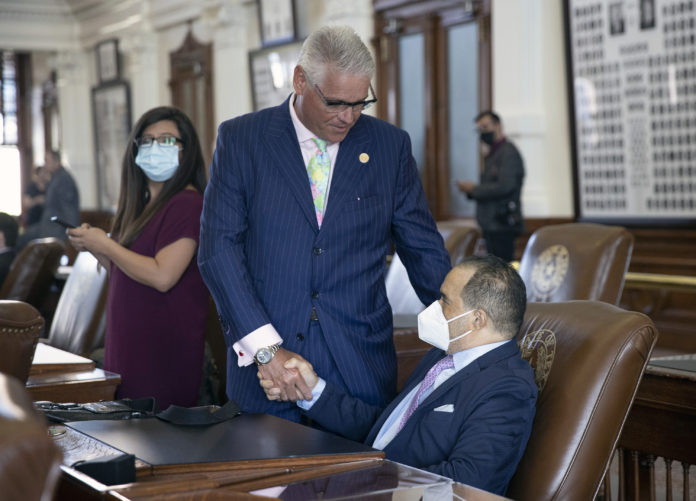By Matt Kyle | Staff Writer
The debate over voting rights in Texas continues as enough Democrats return to Austin to resume work.
This week, the Texas House of Representatives has enough members present to reach a quorum. The House has been without a quorum and unable to operate since July 12, when a majority of House Democrats fled Texas for D.C. in protest of Senate Bill 1, a voting restriction bill.
Since Democrats are the minority party, the exodus was their only hope of preventing the passage of Senate Bill 1. The bill is designed to tighten voting laws in Texas by banning drive-thru and 24-hour voting, imposing new voter ID laws and restrictions for mail-in voting and narrowing the window of time to cast a ballot.
Ever since former President Donald Trump claimed that election fraud cost him the 2020 presidential election, Republicans in Texas as well as other states have been pushing bills like this as a way to prevent voter fraud and preserve election integrity.
Murrieta, Calif., junior Ken Hollingsworth, vice chairman of the Bull Moose Society, said he supports the bill because it is important to maintain the security of elections. Hollingsworth said he doesn’t know how widespread voter fraud is but that any instances of illegal voting invalidate legally-cast votes.
“Every wrong vote that’s cast by either a person who doesn’t exist or by [an] invalid voter suppresses a valid vote from a voter who is a citizen and wants to make their voice heard,” Hollingsworth said.
Hollingsworth said voting methods such as mail-in and drive-thru are potentially more susceptible to fraud due to the increased number of hands a ballot must pass through. He said he believes the new voter ID requirements are the best way to prevent fraud and that all potential cases of fraud should be investigated thoroughly.
Dr. Patrick Flavin, Bob Bullock professor of political science, pointed to low levels of documented fraud cases and said that the problem that prompted this legislation isn’t really there.
Flavin also said he worries that the bill will disproportionately affect voters of color, pointing to a study that found stricter voter ID laws led to lower voter turnout among minority groups. He said that everyone should have a chance to vote and pointed out how many of the voting methods that are being restricted make it easier for low-income voters—like people without cars or those who have to work long hours—to vote.
Shreveport, La., junior Veronica Penales, director of accessibility in Baylor Student Government, said via text she is against the bill because it suppresses the right of disabled voters and voters of color to vote.
“Democracy at its core is a means to allow the expression of all voices,” Penales said. “Suppressing the voices of those who are already marginalized should not be what our voting and elections process is indicative of.”
Penales said she believes voting should be easy and accessible for everyone and that voting is a nonpartisan issue. She said she believes both Democrats and Republicans should focus on making voting as accessible as possible.
Now that Democrats are back in Austin, debates on Senate Bill 1 will continue this week.
With only two weeks left in the special legislative session, lawmakers will have little time to work through Gov. Greg Abbott’s jam-packed agenda. In addition to voting restrictions, the items on the agenda include border security, critical race theory and transgender athletes in youth sports.






